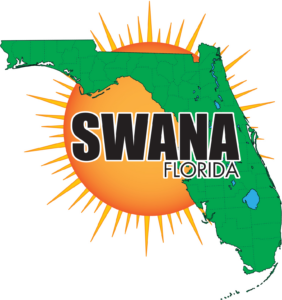SWANA Supports California Lithium-Ion Battery Fire Prevention Act
Passage of AB 1509 will protect workers and support recycling infrastructure in the state
Silver Spring, MD – June 27, 2019 – The Solid Waste Association of North America (SWANA) strongly supports legislation to create a recycling program for lithium-ion batteries in California under AB 1509, the Lithium-Ion Battery Fire Prevention Act. SWANA submitted a letter explaining the need for action to the State Senate Environmental Quality Committee ahead of its hearing on the proposed legislation on July 3, 2019.
The increasing frequency of fires caused by lithium-ion batteries have caused catastrophic damage to facilities, endangered the lives of workers and first responders, and are challenging the viability of waste and recycling operations due to financial pressures.
Lithium-ion batteries are already banned from disposal in California, but California residents must also have the knowledge and opportunity to properly recycle these batteries. This bill will address that critical need.
“We are very pleased to support our California chapters’ efforts to get AB 1509 passed. SWANA has been raising concerns about the dangers posed by the improper disposal of lithium-ion batteries for several years and supports common sense legislation and regulation to reduce the risks to our workers and facilities,” says David Biderman, SWANA CEO and Executive Director. “These batteries are causing fires at waste and recycling facilities that are disrupting operations and causing economic harm.”
The negative effects of lithium-ion batteries in the waste stream are already being felt throughout the state. Shoreway Recycling Center of San Mateo County, California suffered a massive fire in 2016, leading to millions of dollars in damage and a disruption to recycling in the community. But for every large fire that makes the news, there are many smaller fires occurring at these facilities. Even just the threat of fires has led to an unsustainable rise in insurance costs for recycling facilities in the state.
Though the benefits of these batteries are extensive, the burden of safely managing them when their useful life is over has fallen disproportionately and unfairly on the solid waste industry. The passage of AB 1509 will protect workers, support recycling infrastructure, and ensure that manufacturers and retailers share responsibility for the safe handling and recycling of their products. As this continues to be a national and international problem, SWANA will continue to work towards sensible solutions.
SWANA has programs to promote safety including training, tips, and events. Explore the state of solid waste industry safety, fatality data, and new initiatives this October at WASTECON®’s Safety Summit in Phoenix — a must-attend event for any solid waste and recycling professional looking to instill a positive safety culture at their company, learn new best practices, and above all, keep their workers safe.
If the media has any questions or need additional information, please contact David Biderman at dbiderman@swana.org or 240-494-2254.
For more information on SWANA, visit https://swana.org/.
http://feedproxy.google.com/~r/swana/LZcc/~3/SvYrA35Dqd0/NewsDetail.aspx


